Who wouldn't be game for saving some cash on their weekly grocery haul? Especially when it's as easy as coming across in-store sales. There's just one problem: these budget-friendly markdowns can often be close to their expiration dates, which may end up making you sick. And, let's be honest, no ding on your well-being is worth the cents you could save.
While buying certain foods on sale at the grocery store is totally ok, nutrition and grocery shopping expert Maria Marlowe tells us that sometimes it can be a major health risk.
Marlowe is the author of The Real Food Grocery Guide, a graduate of the Natural Gourmet Institute, and a holistic health and nutrition coach. She says that some foods—like frozen foods—are usually fine to purchase on sale, but you may want to think twice about others "as [they're] likely expiring very soon, or even that day."
Why Grocery Stores Mark Foods on Sale
On the other hand, Leah McGrath, RD and Corporate Dietitian for Ingles Markets said that people often misunderstand why grocery stores mark foods on sale. "Given that many consumers don't understand the difference between 'sell by' and 'best by' I think that when grocery stores put items on sale consumers may mistakenly think these items are 'bad' because they have expired. In fact, that is typically not the case. Supermarkets may have different guidelines for how they handle items," McGrath explained.
According to McGrath, some reasons supermarkets might put items on sale include promotions to promote new items, to help reduce inventory, discontinued items, and seasonal items soon after a holiday. "When perishable items are close to their expiration/sell by/best by date, supermarkets want to move items more quickly and reduce food waste. Many supermarkets, like Ingles Markets, even have avenues to repurpose items before they reach their 'expiration date (i.e. sell by/best by dates) or if they have been discontinued. These may include using for in-store food service or providing to a food bank or food pantry," McGrath explains.
Pre-cut Fruit or Veggies
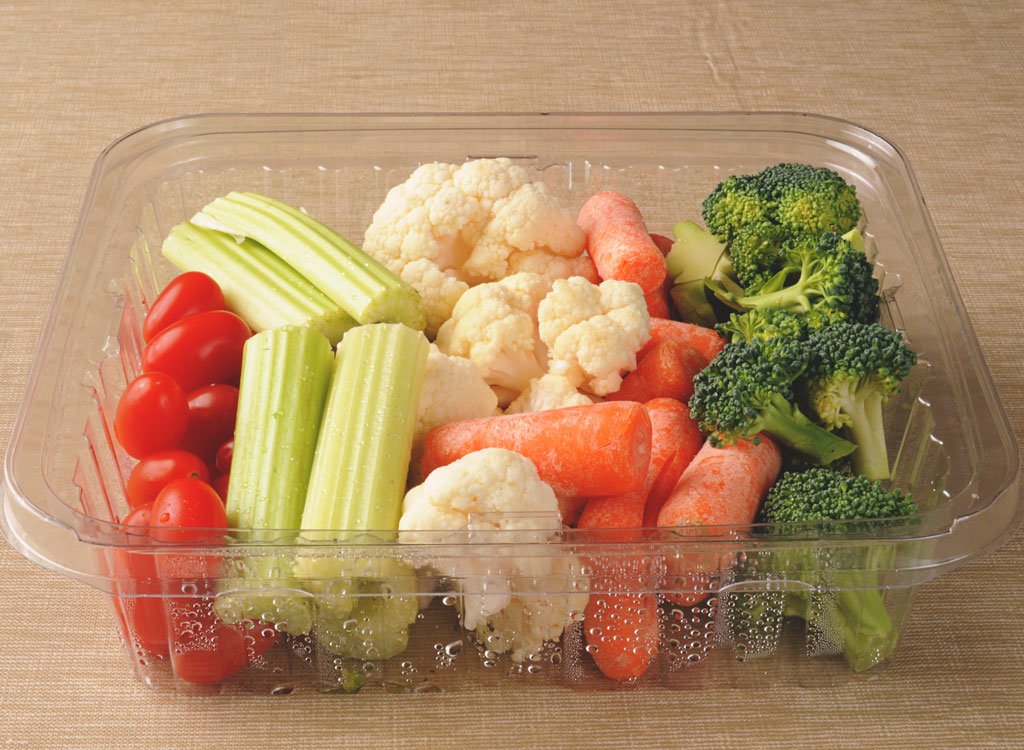
"If pre-cut fruit and veggies are on sale, they're likely on their way out and about to expire. Unless you plan on consuming [them] that day, it's likely best to avoid (although inspect it for freshness and use your judgment)," Marlowe said. Pre-cut veggies look wonky? Grab some whole produce and cut it up yourself so you have something to snack on all week!
Avocados
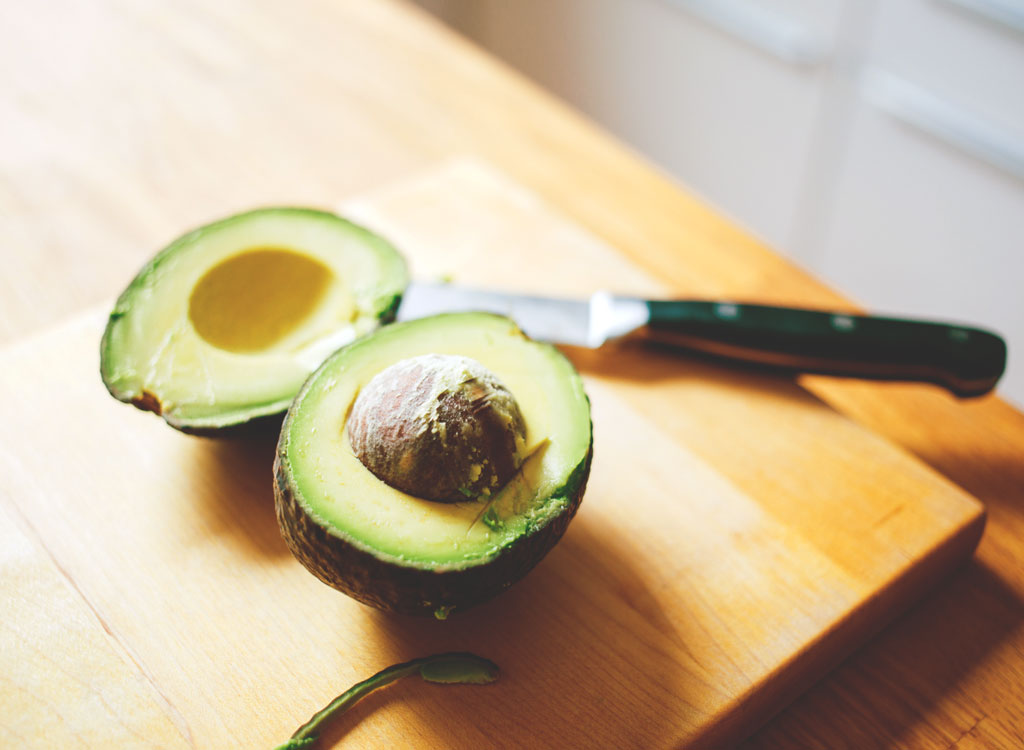
It's hard to say no to a cheap avocado, but when avocados are on sale? "If they are on sale and it's not a guac-heavy holiday, they are probably overripe. Again, if you plan to use it that day, it's probably OK, but you probably don't want to buy them for the week. But, of course, use your best judgment," Marlowe adds.
Conventional/Non-organic Meat
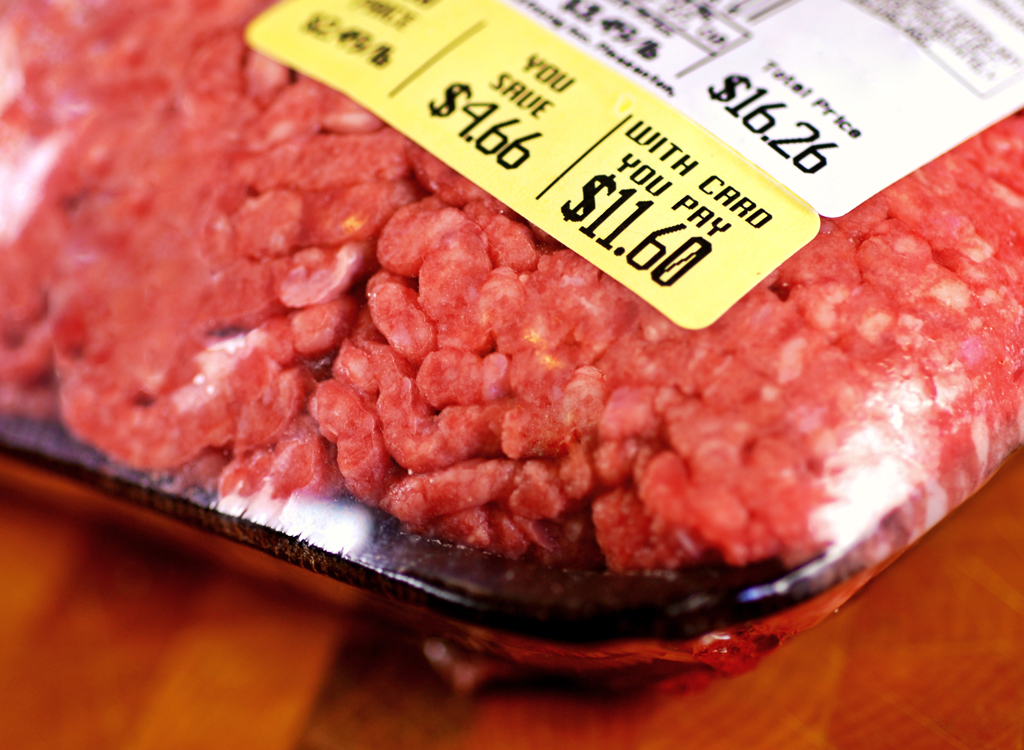
"No matter how good the price is, when it comes to animal products, quality is key. It's best to spend a little more on high-quality meat i.e. organic, grass-fed, pasture-raised," Marlow said.
But if you do find high-quality meat products on sale and they haven't yet reached the "sell-by" date, you might have a good opportunity to save. "I frequently buy expensive cuts of meat that have been discounted for "quick sale" as they get close to their "sell by" date," McGrath notes.
Farmed Seafood
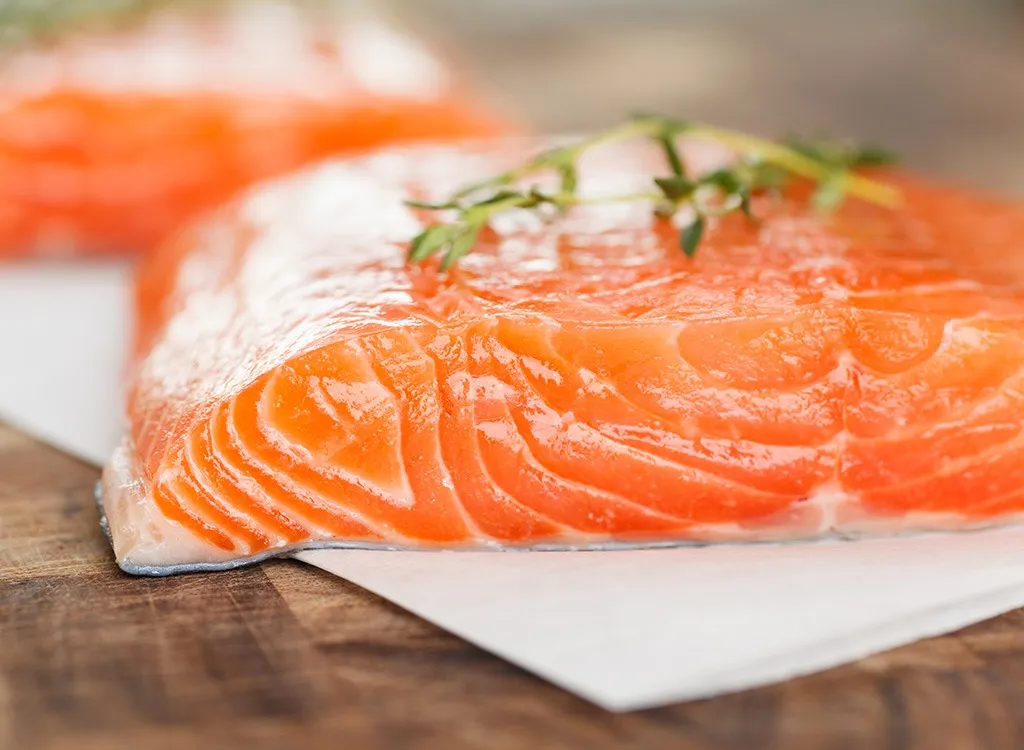
Regardless of whether there is a sale or not, farmed seafood isn't Marlowe's go-to. "Wild Seafood is a healthier choice, as it typically has less contamination of PCBs compared to farmed, and is significantly lower in calories and saturated fat compared to farmed," Marlowe said. "Wild is also typically more nutritious. For example, wild salmon has a more ideal omega 6:omega 3 ratio, whereas farmed salmon is much higher in pro-inflammatory omega-6, which is not ideal. Depending on where the fish comes from, there is also a possibility that farmed fish can be treated with antibiotics," Marlowe explained.
Cereal

Sorry, cereal-lovers: "I wouldn't buy it if not on sale either — sugary, refined grains are not the best way to start the morning," Marlowe said.
Pre-washed, Bagged Salad Greens
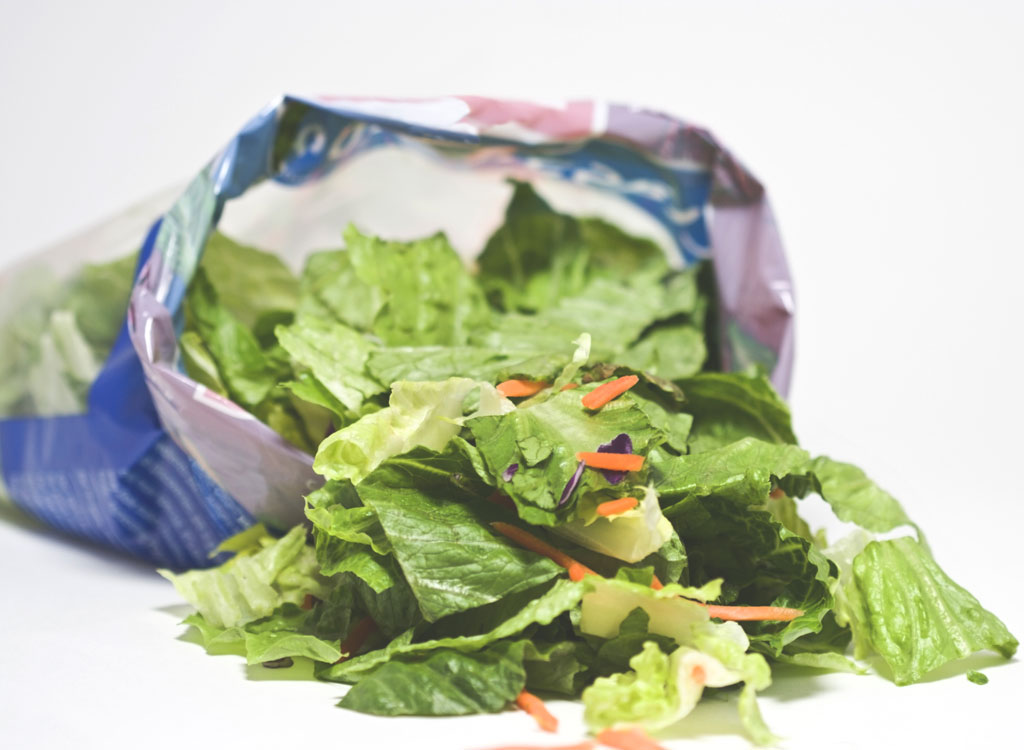
"If the pre-washed, packaged salad greens are on sale, they're probably about to expire. Check the expiration date and examine the package to ensure freshness before buying," Marlowe advised.
Baked Sweets

Bakery sweets and cakes may be even more enticing when placed on sale. Besides the possibility of not tasting as fresh or being stale, Marlowe says to avoid them when you can. "Sweets are too tempting to keep around! It may cost less, but the calories and amount of sugar are the same," Marlowe added.
Nut Butter with additives/preservatives
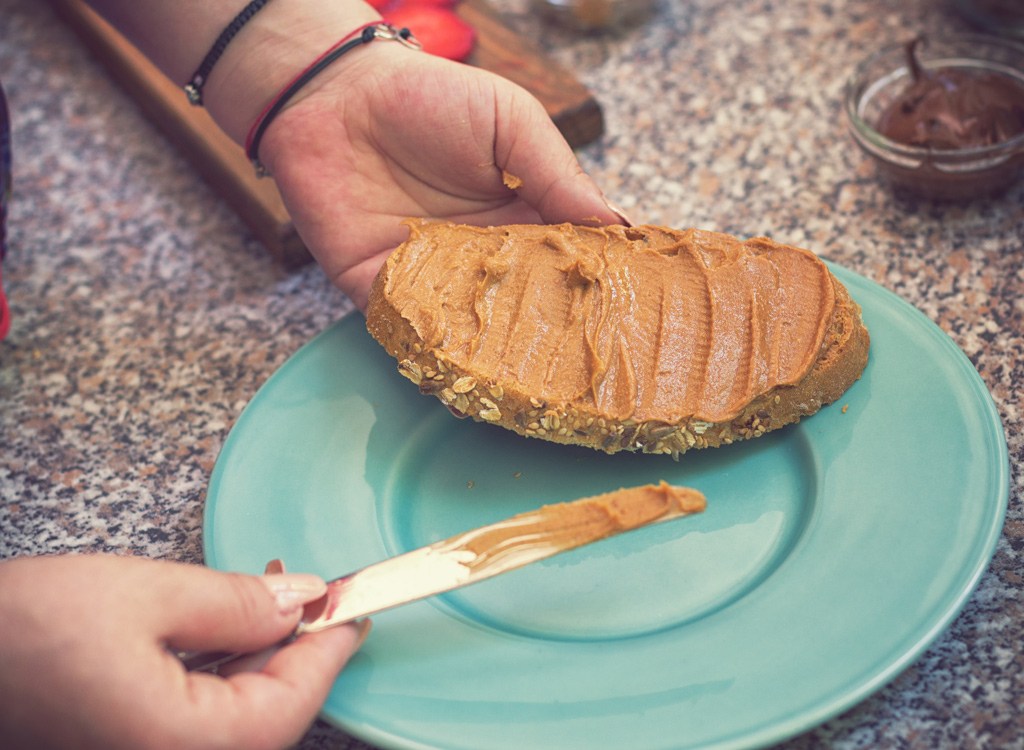
"Nut butter is expensive (I'm looking at you $20 bottle of almond butter!) but instead of choosing an expensive nut butter that is cut with additives like vegetables oils and sugar, consider buying a less expensive nut and seed butter that is pure. For example, sunflower seed butter, cashew butter, and tahini are all more reasonably priced than almond butter (even when the additive laced-almond butter is on sale!)," Marlowe said.
Fresh Nut Butters
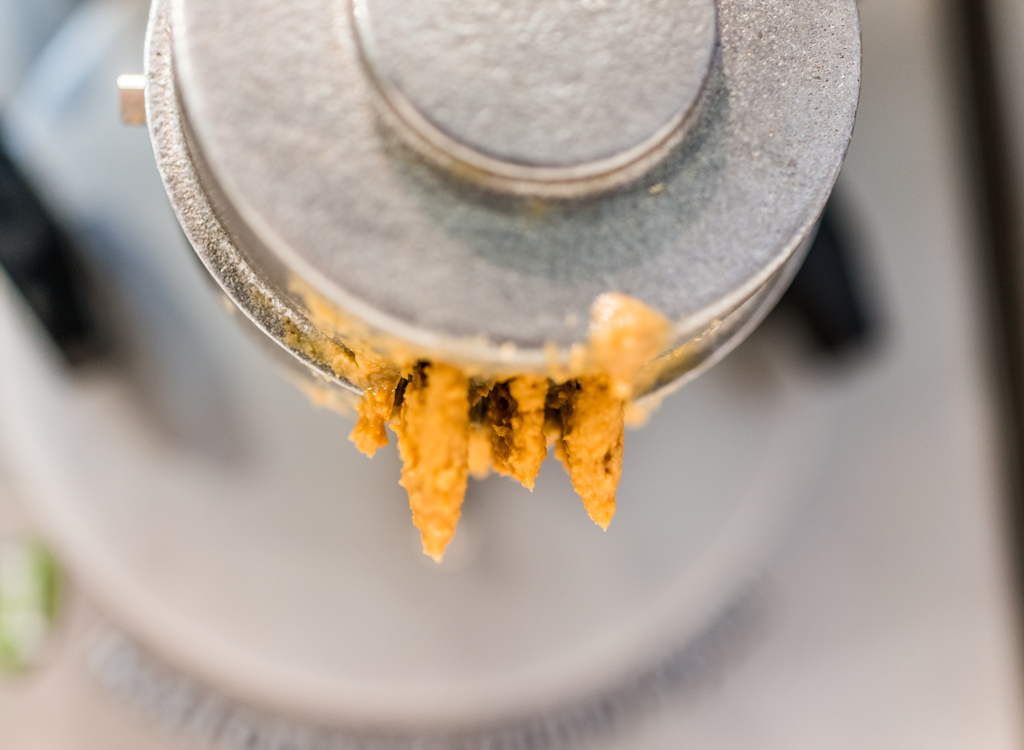
On the flip-side, if freshly ground nut-butters are on-sale at the grocery store (for reasons other than a special promotion the store is having) be cautious. Since these kinds of nut butters are preservative-free, they may not taste as fresh and could go rancid quickly.
Eggs
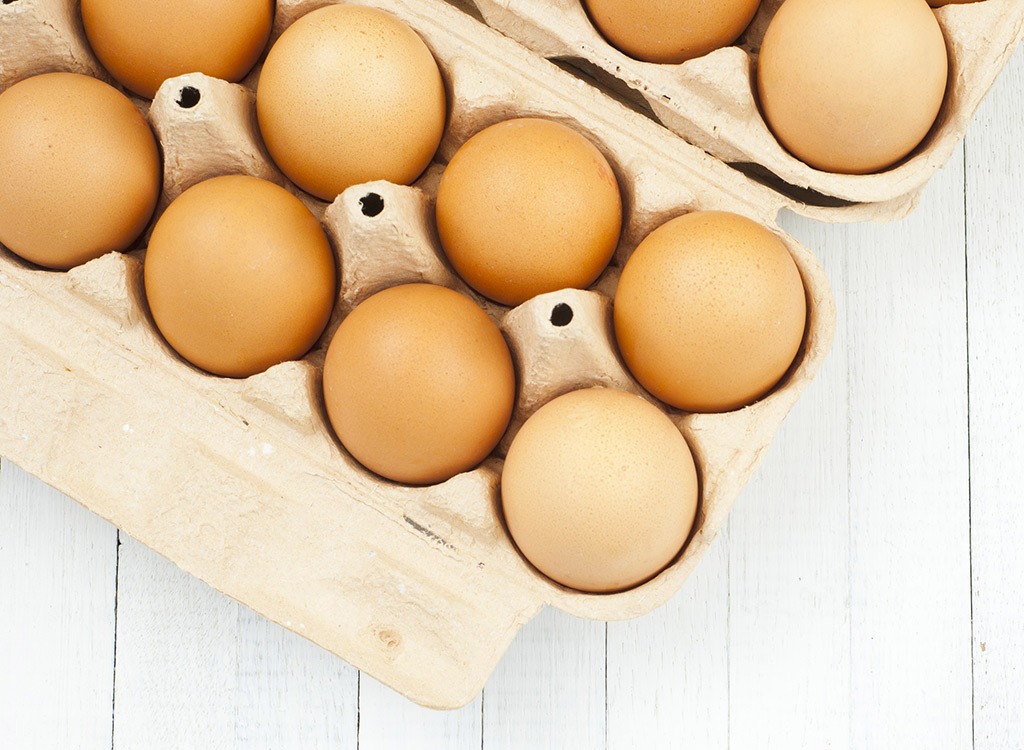
While eggs are relatively cheap staples to keep in the fridge, if you come across some that are deeply discounted, you may want to think twice. "It's always best to pay more for high-quality animal products, such as organic meat and eggs, or wild seafood. By doing so, you avoid the hormones and antibiotics that can be found in conventional meat and limit your exposure to certain chemicals found in seafood," Marlowe said.
Milk
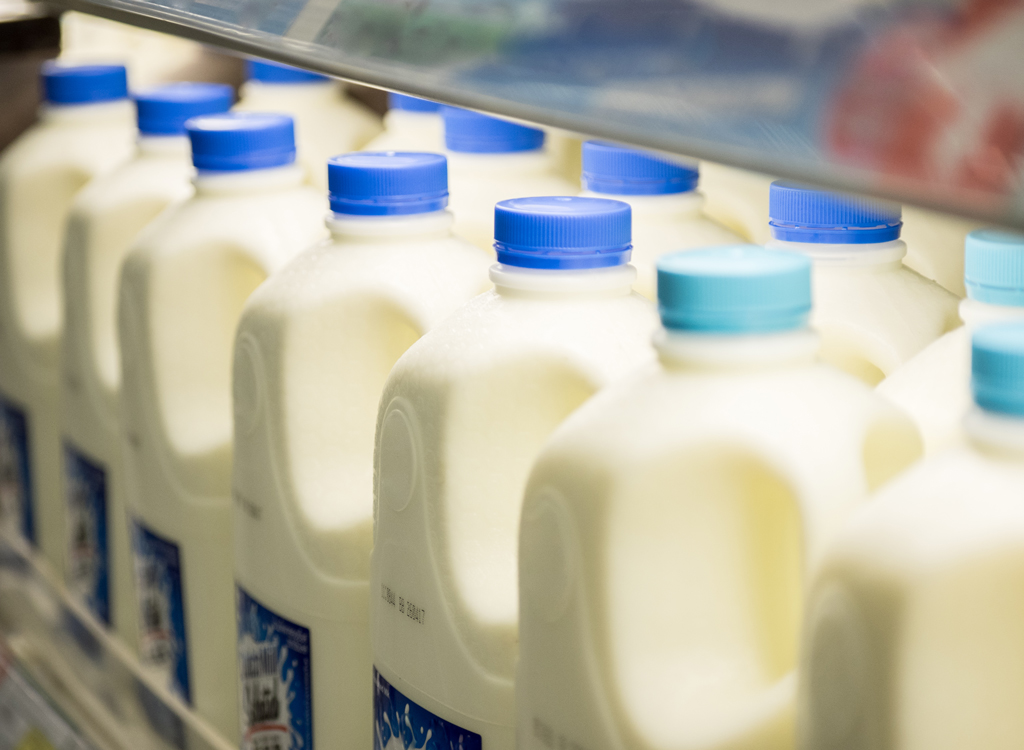
If you use a lot of milk, you'll definitely want to check the expiration date on the package before buying at a discount. Ask anyone who's ever brought home a new carton of milk and then finds it's actually spoiled once they open it. It's not a fun (or safe) experience to have.
Bread

Bread is another pantry staple that may be on the way to being stale if you're buying it on sale. Check the date on the package to make sure it's relatively fresh before taking it home. Even worse, you might notice mold growing a little bit sooner than desired if you take advantage of a really cheap deal at the store.
Preservative free-foods

This may seem a bit obvious since many people like to avoid preservatives in food anyways. But you may want to especially stay clear of sale foods marked "preservative-free," unless you're going to eat it right away. Clearly, a lack of preservatives in a perishable food is a bad idea if it's questionable when the food was made or how long it sat around on the shelf.
Yogurt
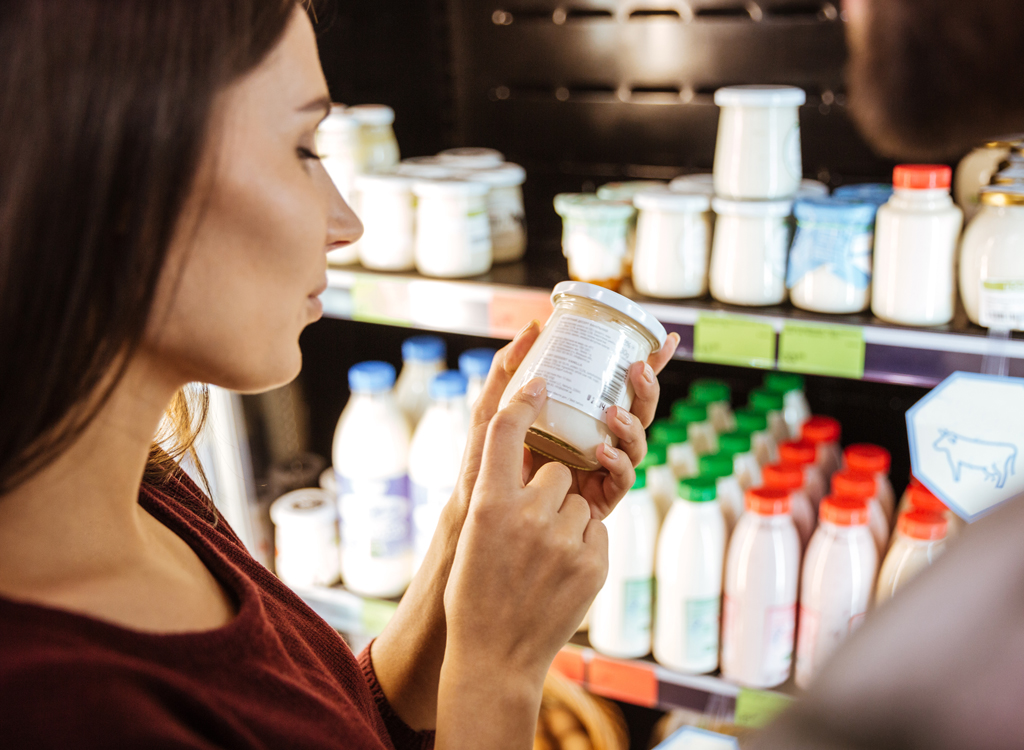
Similar to milk, Greek yogurt and regular yogurt can spoil easily so proceed with caution when you find it at a deep discount on the shelf at your favorite grocery store. This is a bit tricky since most yogurt is cultured milk with probiotics, so it can naturally taste or smell a little sour—even if it's not necessarily bad.
No comments:
Post a Comment